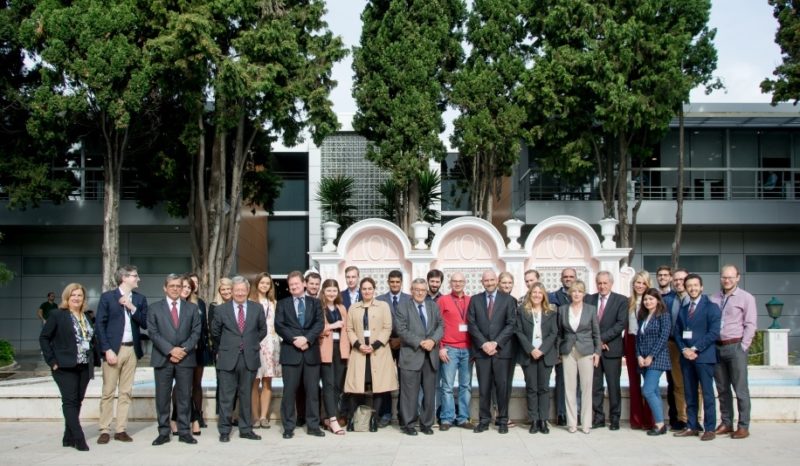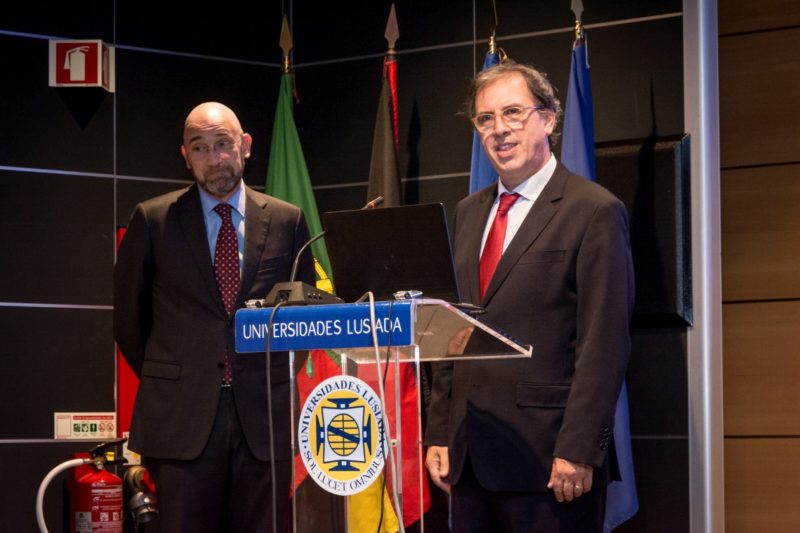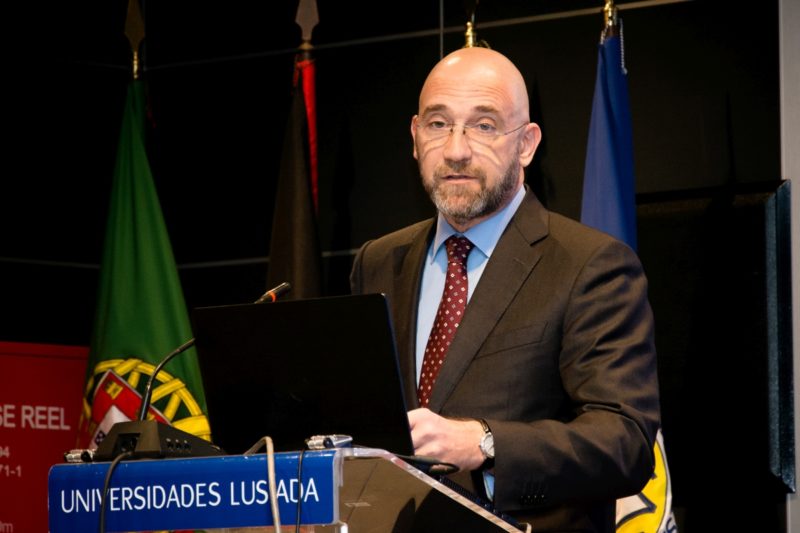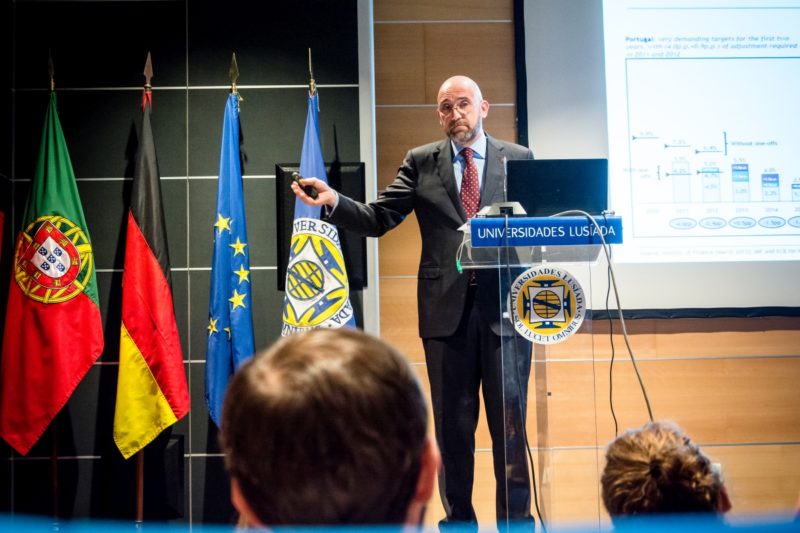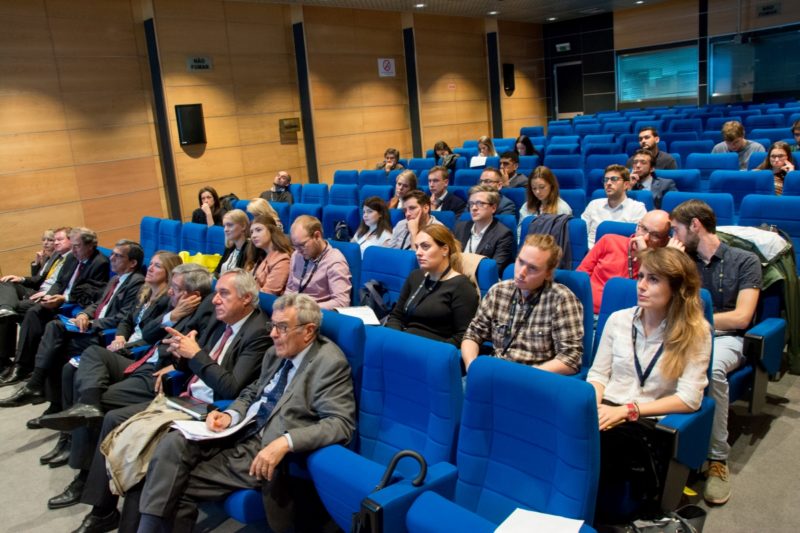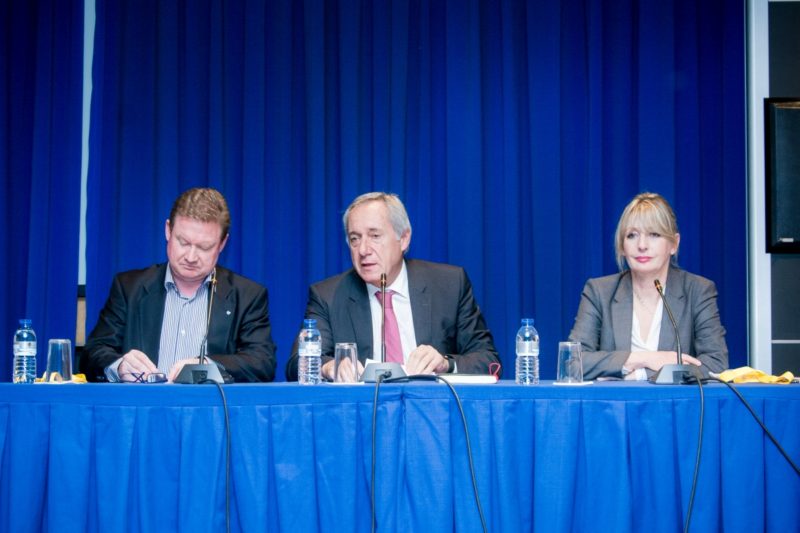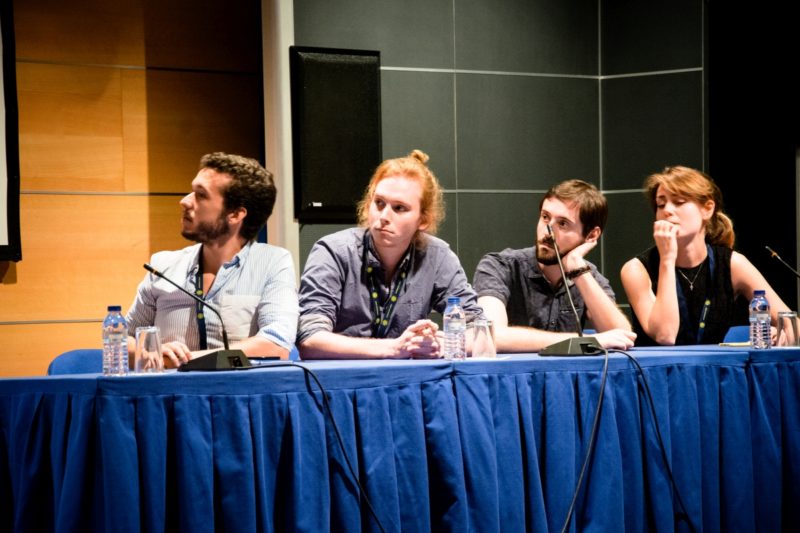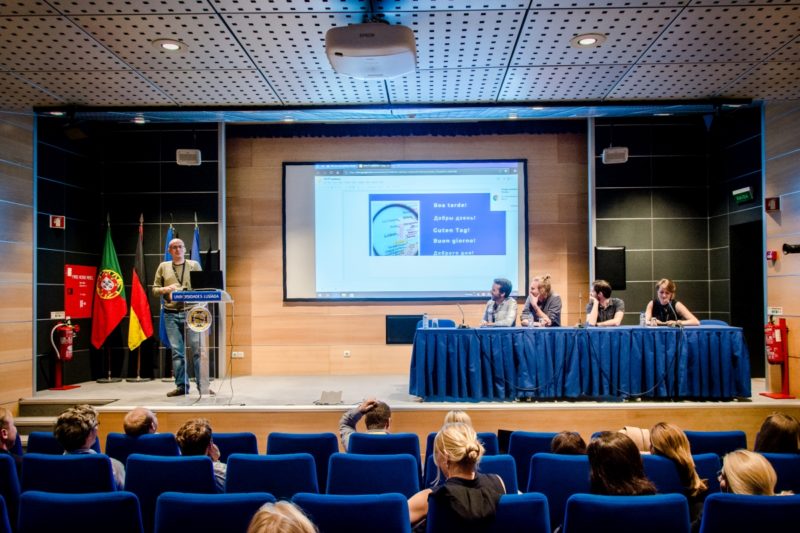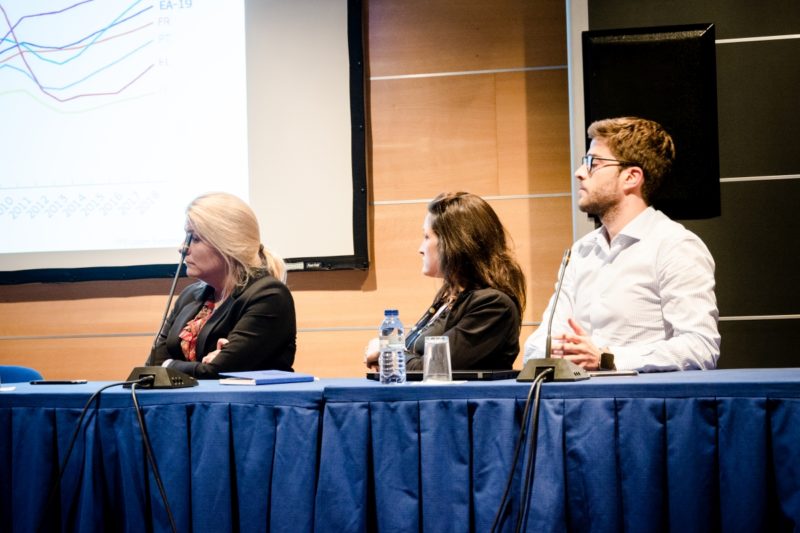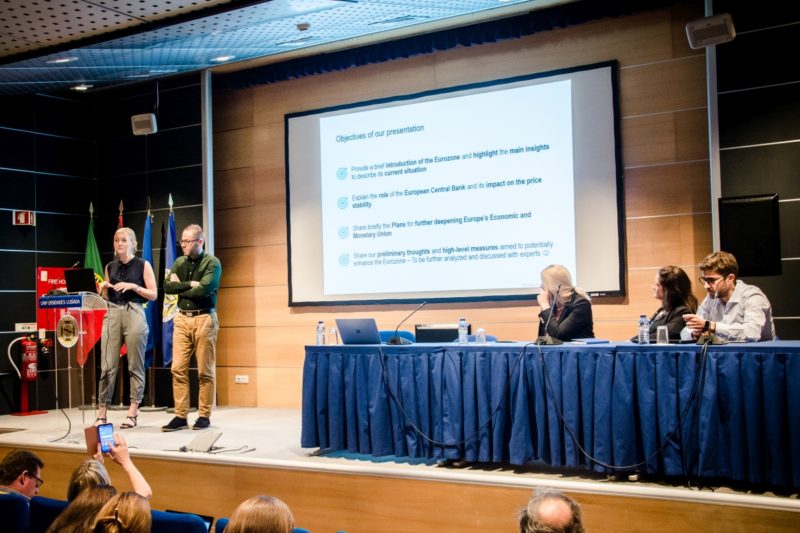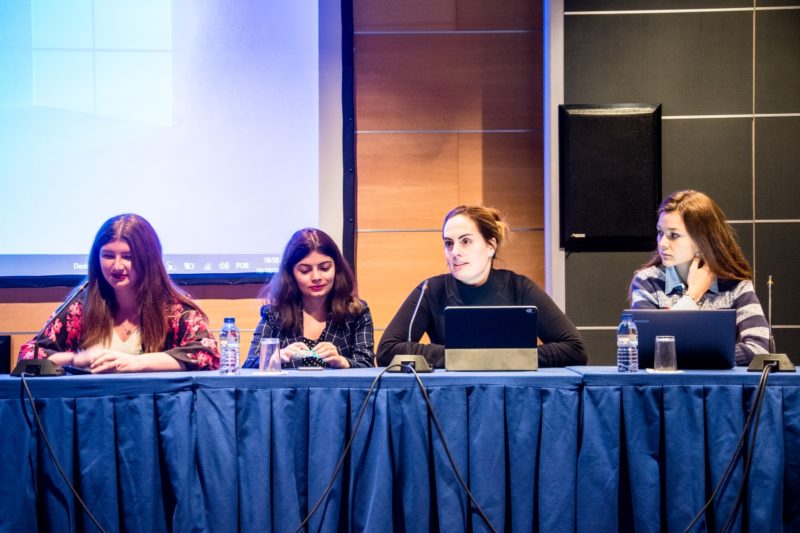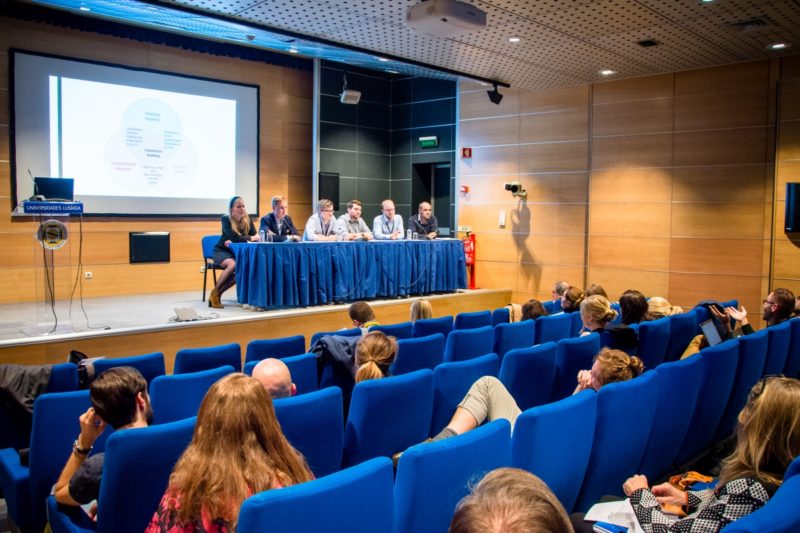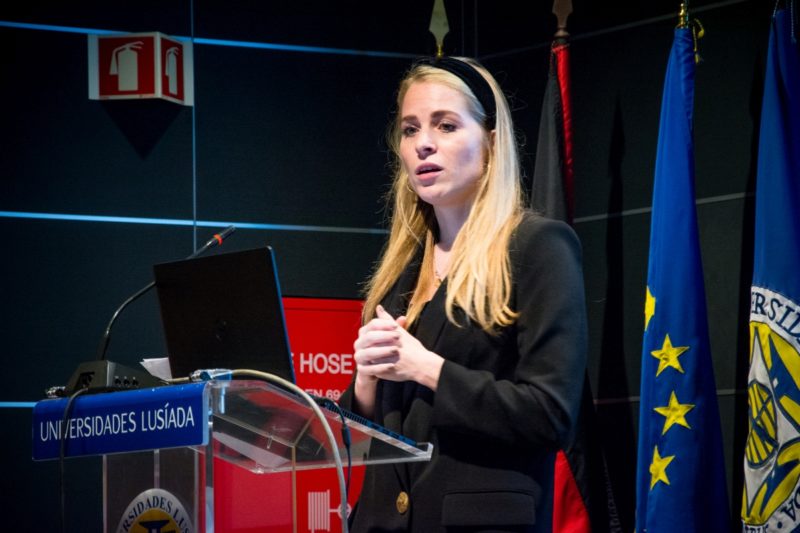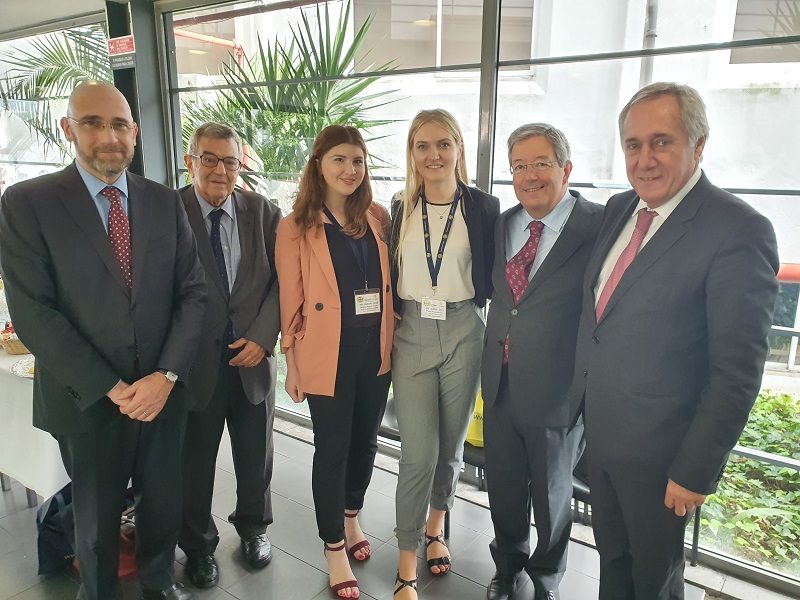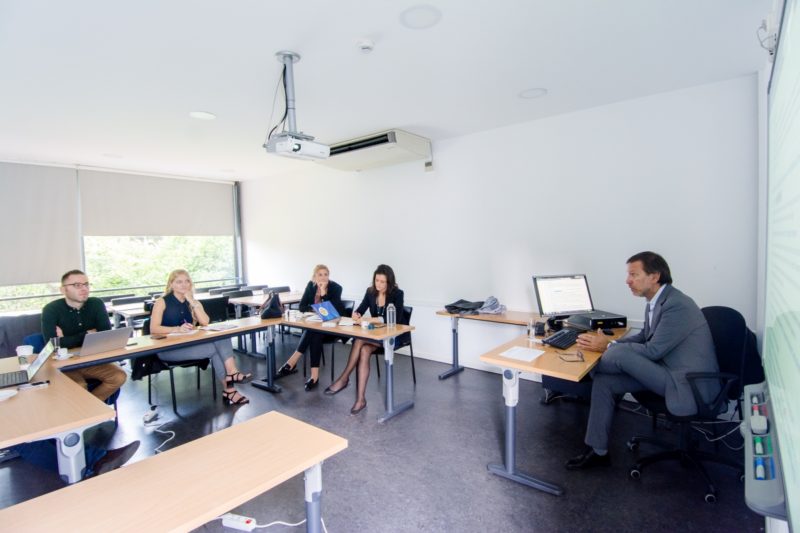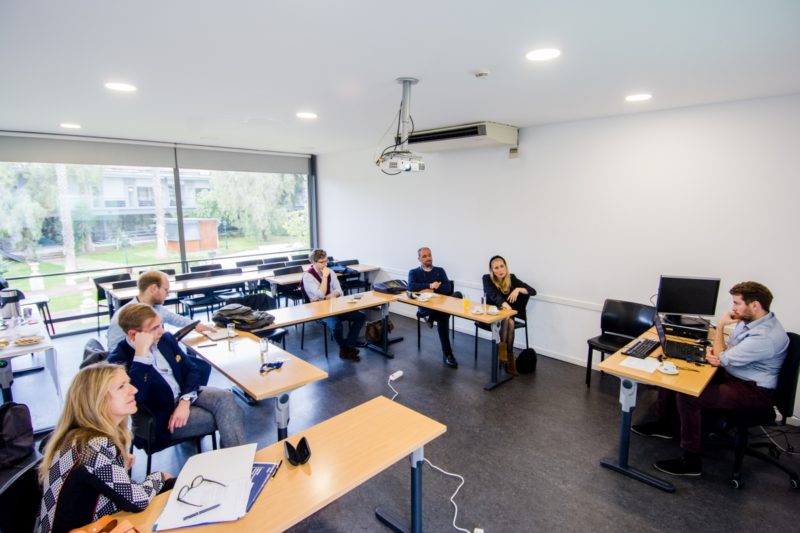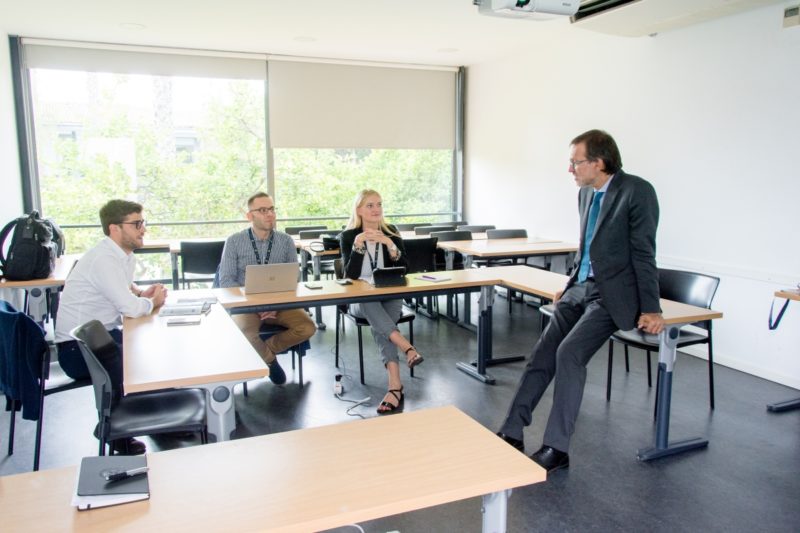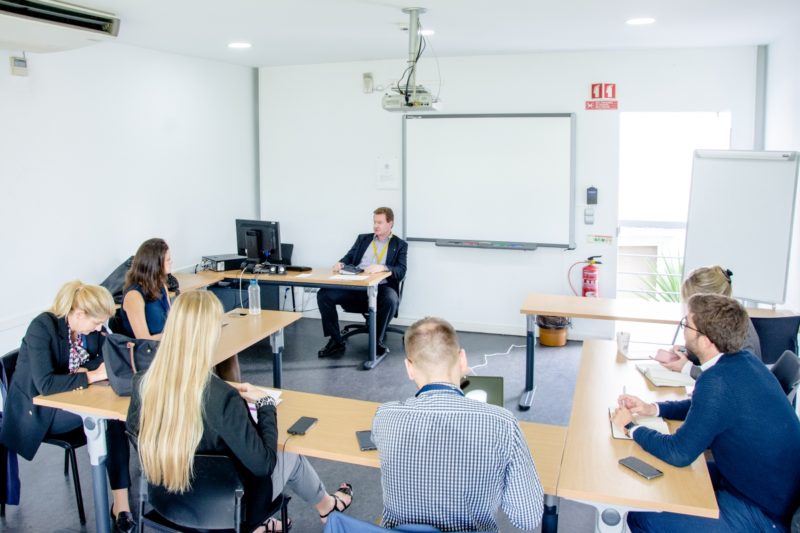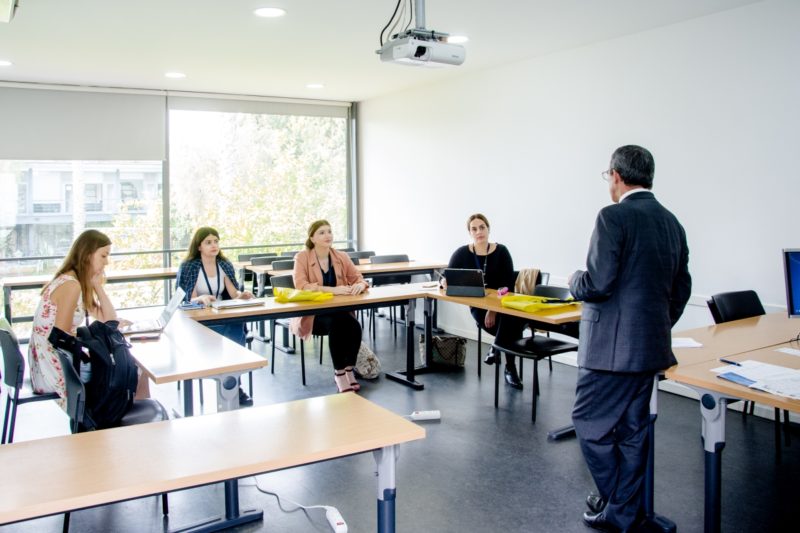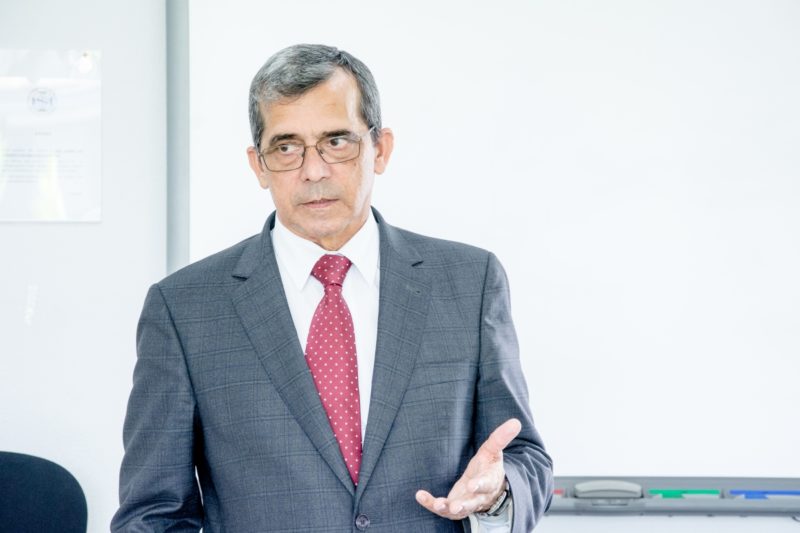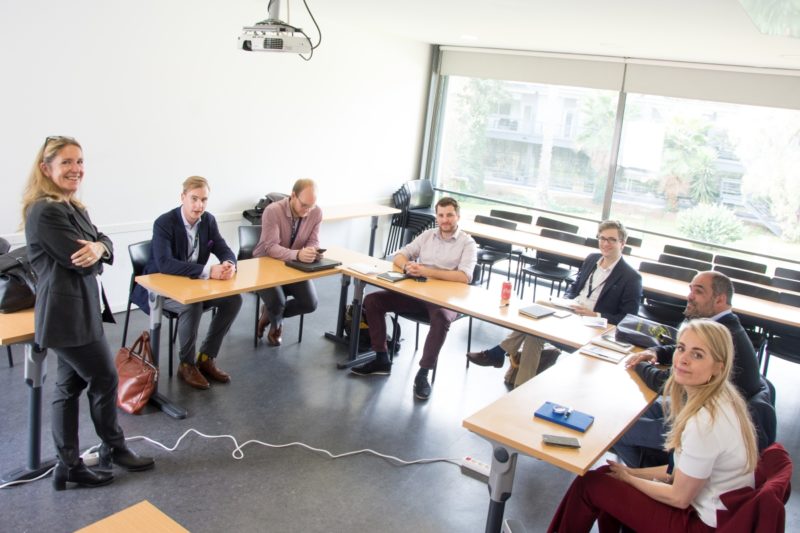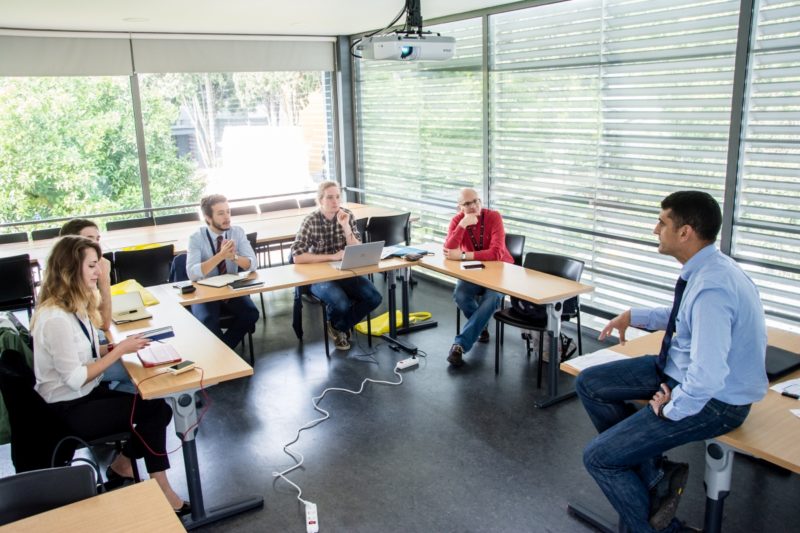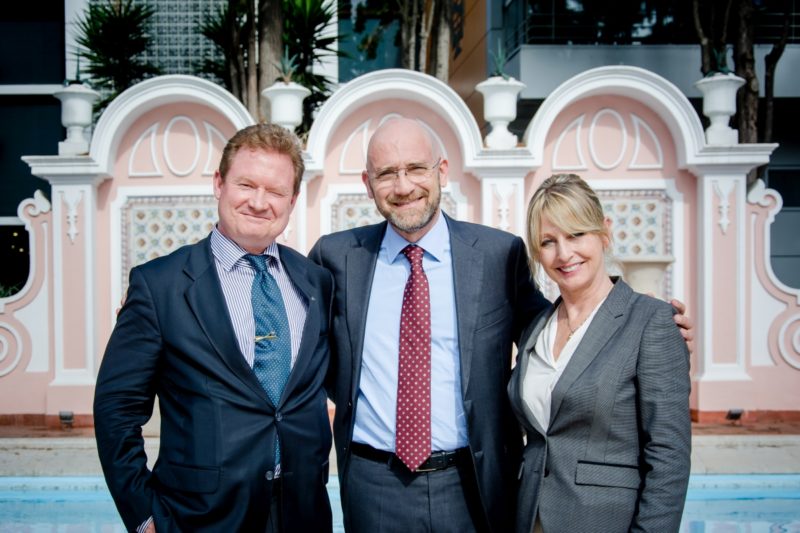On 17th and 18th October 2019, United Europe’s 16th Young Professionals Seminar took place in beautiful Lisbon on the topic “How to strengthen the Eurozone”. In cooperation with Lusíada University, United Europe had invited 21 young committed Europeans from 14 countries (Armenia, Austria, Bosnia-Herzegovina, Finland, Georgia, Germany, Great Britain, Italy, Netherlands, Poland, Portugal, Spain, Serbia, Ukraine) and diverse professions to Lisbon to discuss the current status of the Eurozone and define what is necessary to keep it stable.
In the run-up to the seminar four working sessions were established, on following topics:
1. Institutional, political and partisan aspects of the European Union
2. Relations between the EU, the USA and RoW; the specificities of the NATO connection
3. The current state of the Eurozone, role of the European Central Bank and plans for further deepening Europe’s Economic and Monetary Union
4. Portuguese lessons from 2 decades of EMU participation: From Boom to slump to weak recovery
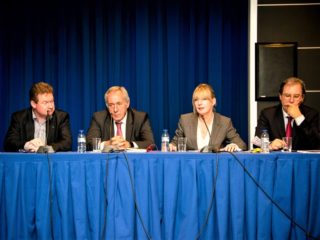
On the morning of 17th October the participants were greeted by the Professors and employees of Lusíada University in Auditorium 1.
The seminar started with welcome remarks by Prof. João Redondo, Chancellor of Lusíada University, Sabine Sasse, Managing Director of United Europe, United Europe members Marcus Lippold, Energy Expert and Advisor and Dr Jorge Antas de Barros, Honorary Consul and President of Chamber Commerce & Industry Portugal-Baltics.
The participants then introduced themselves and formulated their expectations for the seminar. Expectations/ comments ranged from
o doubting that their country would ever be allowed to join the European Union
o to wanting to join the EURO area as soon as possible
o to treasuring the EU-wide work possibilities available to them
o to seeing the need of EU (financial) reform
o to acknowledging the need to more actively highlight/defend Europe’s achievements
o looking forward to meeting and interacting with great people
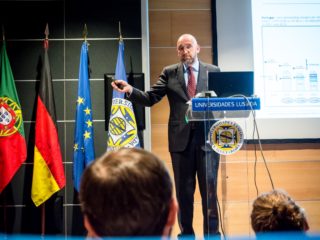
An impressive opening speech was then given by Prof. Pedro Passos Coelho, Professor of Economics and former Prime Minister of Portugal: “The crisis in Portugal (2009-2014): plans, strategies, reality and overcoming”.
Prof. Coelho gave detailed insights into the origins of the financial crisis and the resulting debt challenge facing Portugal, the measures he and his government ultimately employed to resolve the crisis and an update of where the country is today. It was a very insightful and open account of the tough choices Portugal faced, leading to the Troika (EU Commission, IMF, ECB) arriving in Lisbon for negotiations, with Portugal ultimately obliged to enforce tough austerity measures in order to start rebalancing its current accounts.
Looking back, he expressed his gratitude to European leaders that were supportive during these tough times (notably Chancellor Angela Merkel) and gave a cautious reminder that an outright crisis might have been averted, but that the country is still in the process of continuing the adjustment process which still affects the lives of citizens today.
Please find Prof. Coelhos entire speech here
and the corresponding presentation here: The crisis in Portugal (2009-2014) – plans strategies reality and overcoming_Slides PPC.
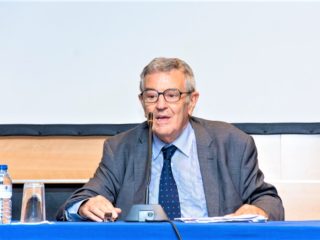
Subsequently Prof. Manuel Porto, Professor at the Faculty of the University of Coimbra, gave an impassioned speech about “History of the European Union, fundamental rights and the economy in the EU”, based on his own life experiences and international family situation, calling on participants to speak out on European values and ideas, to actively defend democracy and not take our achieved values and freedoms for granted in today’s world. He stressed that we are all part of Europe’s fabric and that it is our joint responsibility to defend our democratic values and beliefs, with education playing a big part here.
After lunch, the working groups spread out over four rooms and began to work on their respective topics.
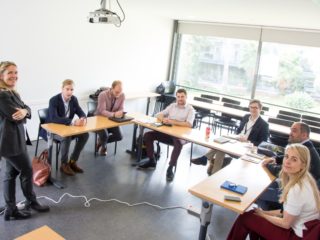
WORKING GROUP 1: Institutional, political and partisan aspects of the EU
Participants: Benedikt Köhler, Karl Luis Neumann, Raiko Puustusmaa, Frederick Thiede-Merlo, and Doortje van Bokkem.
Led by Prof. Patrícia Daehnhart, group 1 worked on the topic of how to avoid fragmentation in a unifying Europe. Special attention focused on a) EU foreign relations and security, b) the EU caught in the middle between the USA and China, c) geopolitical instability in the Middle East and Eastern Europe and d) the possible shift from multilateralism to bilateralism. Other related topics were trade and economics, using the EU’s economic power to achieve politic results and a too reactive EU foreign policy strategy.
Points of criticism were:
Missing political representation in the European Parliament, EU institutions and the EU party system deemed as not transparent. Also, lack of a strong democratic mandate for the President of the Commission, lack of external standing of the institutions, demoralized voters and unanimous decision-making vs. qualified majority voting.
Regarding partisan aspects of the EU, the political party landscape in Europe is perceived as getting more and more polarized; reasons being growing individualism, less capacity to compromise, resulting in an EU becoming more and more fragmented. It was observed that in EU member states – except UK – established traditional parties move towards the political middle ground. A change in the distribution and consumption of news is also seen as having an impact on the state of the EU and democracy. Traditional, established media is less trusted and the uncertainty of “facts” grows. The increasingly heterogeneous electorate leads to growing niche parties as well as increasing difficulties to find a majority for governments and decision-making already on the national levels.
Recommendations of the group:
1. Adjustments to the EU electoral system
o Increase representation
o Give Parliament the right to propose the EU President
o Increase local attachment of MEPs through local presence and direct vote
2. Step-by-step approach to EU integration
o Enlarge the scope of Qualified Majority Voting
o Strengthening new integration ‘vehicles’ (PESCO)
o Apply principle of Subsidiarity more (European – regional – national – local)
o Prioritize fields of integration (Common Foreign & Security Policy CFSP, trade)
3. Education & Exchange
o Foster existing integration programs
o Make better use of new programs of exchange (Interrail ticket, mandatory social services on a European level)
o Mandatory education about European electoral system and institutions (also debate on current issues)
o More effective communication (Advertising/ communicating EU successes)
WORKING GROUP 2: Relations between the EU, the USA and RoW
Worked on the relations between the EU, USA and rest of the world and the specifics around current NATO connection.
Participants: Dyria Alloussi, Narine Daneghyan, Eter Glurjidze, and Anna Romandash.
The group was led by Prof. Luis Saraiva, Assistant Professor of International Relations. In their presentation, participants focused on the topic “Security in Europe: views from Southern and Eastern neighbours”.
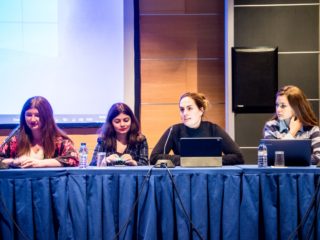
Findings: US and NATO provided EU security for 50 years, helping the EU to become one of the wealthiest economic zones in the world. As the US focusses more on Asia Pacific, NATO has become weaker. NATO could continue to be a vital guarantor for global security, but the EU currently does not have sufficient military capacity and security interests among major NATO members are drifting apart.
EU’s biggest economy, Germany, buys most of its gas from Russia and has a lot of energy agreements which influence its foreign policy. Given time, Germany has to accept its major role in Europe and should prioritize the EU’s interests, especially at a moment where the EU plays a secondary role for American Security concerns: it is time for the EU to be more proactive and to strengthen the Eurozone through diplomacy and cooperation at its Southern and Eastern borders.
Syria: It is evident that where the US recently withdrew, Russia quickly filled the vacuum. The conflict in Syria continues and affect the EU and should be considered a priority. Turkey has now struck a deal with the US and intervened in Northern Syria which resulted in a devastating humanitarian and political situation. Whilst the EU is procrastinating, other regional powers are taking action. With no security capacity to defend its interests and all the talk about migration being a major issue, the EU does not do much to contain threats at its southern borders or to combat the causes of refugees coming to the EU.
Ukraine: Although the EU and NATO support Ukraine financially and with capacity building projects, Ukraine is not their priority now. The EU has to be more proactive by developing a clear strategy toward Eastern neighbours and prioritize border security by helping stabilize the situation in the East. The West is also very careful to protect business interests in Russia; however. Ukraine is clearly in the sphere of Western interests and the West is slow to accept that. Realizing and acting upon this requires political will, which is necessary to continue developing ties and security cooperation in the region.
Clearly, there are actions needed from the Ukrainian side such as commitment to the reforms and a clear strategy on handling the occupied territories. At the same time, the EU should show its continuous commitment to the international treaties and security to actually strengthen the Eurozone from within and encourage Ukrainian partners to cooperate with Western neighbours.
Georgia: Euroscepticism in Georgia is a challenge, which can be tackled through positive incentives for example introducing visa free regimes. This was one of the actual steps from the EU that had a positive outcome and accelerated the perception of western values.
In terms of economics, the EU markets are still not fully accessible for Georgian businesses due to high standards (DCFTA). Georgia was hoping to establish reliable trade links with the EU to replace its trade dependency with Russia (which is still high). In Georgia the EU has lots of soft-power engagements especially in terms of neighbourhood policy through educational exchange and transregional projects. The situation at border territories is not stable, as ‘borderization’ still continues: kidnappings and torturing of Georgian citizens is ongoing. There is an opportunity for the EU to gain more influence by fostering communities in border-line regions by investing in entrepreneurship or by ensuring some form of economic security.
Armenia: The results of European engagement with Armenia will not be seen any time soon as Armenia will not stop its good relations with Russia as long as security is not ensured. Russia currently patrols Armenia’s border with Turkey with a military base in Gyumri. Russia currently provides hard power arsenal, whereas the EU provides education exchange and financial aid. From 2014 until 2019 Armenia received over 1 billion EUR in form of loans and grants for energy, agriculture and transportation programs.
Since the security aspect is such a priority for Armenia and that is currently partially provided by Russia on the border with Turkey, the two powers are going to be balanced inside the country.
In addition, Armenia is a member of EAEU (Eurasian Economic Union) and will continuously try to balance its relations with two powers in parallel.
WORKING GROUP 3: The current state of the Eurozone
The 3rd working group was entitled “The current situation of the Eurozone, the role of the European Central Bank and plans for further deepening Europe’s Economic and Monetary Union” and led by Prof. Álvaro Matias, Senior Economist at the Statistics Department of Banco de Portugal.
Participants: Kseniya Cheshyk, Albert Herrador, Gergely Nagy, Kristina Radovic, and Ana Terzic.
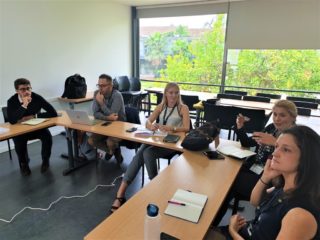
The group pursued following objectives:
o Provide a brief intro to the Eurozone, highlight main insights to describe its current situation
o Explain the role of the European Central Bank and its impact on price stability
o Share briefly the plans for further deepening Europe’s Economic and Monetary Union
o Share their preliminary thoughts and high-level measures aimed to potentially enhance the Eurozone – To be further analyzed and discussed with experts.
The Eurozone is composed of member states that have adopted the euro as their national currency, currently 19 countries.
o Monetary policy in the Eurozone is in the hands of European Central Bank (ECB) and the national central banks
o Economic policy however is responsibility of the member states, although there is a coordination to attain common objectives. Several instruments have been put in place to ensure coordination, e.g. the Stability and Growth Pact (SGP)
o Key fact: Andorra, Monaco, San Marino and the Vatican City have adopted the Euro, but are not part of the Eurozone (as they are not EU Member States)
Despite having a far from perfect toolbox, the ECB has nonetheless with some unconventional measures and promises to the market, kept the Eurozone together. The primary mandate of the ECB is to ensure price stability in the Eurozone and to support the general economic policies of the Union. Price stability is defined as a year-on-year increase in the Harmonized Index of Consumer Prices (HICP) for the Eurozone of below 2%. In 2003, the Governing Council clarified that in the pursuit of price stability it aims to “maintain inflation rates below, but close to, 2% over the medium term. In the Eurozone, the Real GDP per capita is slowly recovering from the previous financial crisis. So far, the ECB has managed to achieve its objective of price stability, although new challenges are arising.
Potential measures for the Eurozone are:
Institutional
o Completion of the Banking Union
o SRM (Single Resolution Mechanism) is operational but not filled up 100% (2023 is the deadline – speed up the process, respect the deadline) and EDIS is not in place yet
o Communication between national central banks, Eurogroup, European Commission and ECB should be enhanced
o ECB to evolve into a fully-fledged financial supervisory authority
Monetary
o Current levels of neutral interest rates, as a guide for monetary policy and place for maneuvering are getting tight
o Non-conventional measures (bond and asset-purchases), verbal interactions should be used as tools more often to address market situations, but risks need to be tackled so that these measures should not be overused
o Non-conventional measures have become the new norm, more discussion is needed around unconventional measures in order to prepare for turbulent times. New ECB president: momentum to strengthen credibility and ascertain monetary policy priorities
Fiscal and macroeconomic
o As a first step, banks in Eurozone should have a standardized corporate tax rate (they operate under same principles, regulations) and…
o … enhance the realization of the Common Consolidated Corporate Tax Base (CCCTB)
o A standardized Eurozone fiscal rulebook should be adopted, should include fiscal and economic risk reduction measures in order to achieve further risk sharing among member states
Capital market union
o To further integrate capital markets the capital markets union aims to provide new sources of funding, especially for SMEs/reduce the cost of raising capital/increase options for savers across the EU/facilitate cross-border investing and attract more foreign investment into the EU/support long-term projects/EU financial system more stable, resilient and competitive
Political
o Eurogroup should be formalized institution, has already been proposed by several entities
o More authority and more meetings on economic policies
o This could be speed up to reach before 2025
The Eurozone is a special construct with a distinct united European nature. The common currency zone has survived and is facing many challenges, and it showed that it is capable of developing itself and responding to emerging matters.
The biggest antagonist against it has been the UK. If somebody else now wants to stop it, they need to step up to the plate. It is probably going to be Germany and potentially Holland and some Nordic countries that will be more vocal in terms of what they want or do not want. But it’s clear that the alliances in the EU will change. A bigger formalized sort of institutional toolbox needs to be at the disposition of the ECB. With good luck, fortunate timing and big promises the ECB will probably not be able to manage EU affairs in the future as successfully as it has in the past five years.
WORKING GROUP 4: Portuguese lessons from 2 decades of EMU participation
Headed by Prof. Fernando Martins, Senior Economist at the Research Department of Banco de Portugal. Topic: “Portuguese lessons from two decades of EMU participation: The boom, the slump and the weak recovery”.
Participants: Stefano Bennati, Stefano Duca, Gabriel Frickh, Oleksandra Permiakova, and Nuno Ramos.
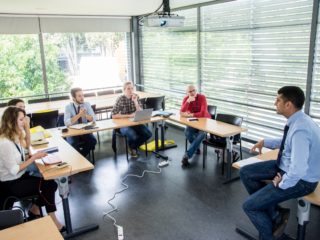
After the big crisis, Portugal is recovering and GDP is increasing. Unemployment is much lower, wages are going up and exports are growing. Despite these good news there a still reasons for concern though:
o Population is declining and getting older
o Debt is still very high
o Tourism is a big economic resource and drives the services export, but it is not resilient to crisis. All growth since 2013 has come from the nonfinancial corporate sector
o The ECB responded to crisis by inserting credit risk into the European sovereign debt market. This idea, which is dangerous without the creation of some new safe asset to replace national government bonds, remains on the policy agenda.
o Export is strong but relies heavily on few euro-zone countries Spain, France, Germany, Italy, Belgium, and Netherlands
o Productivity is low compared to other Eurozone countries like Germany, France, Austria, Italy, Spain, UK.
o Lack of skilled workers
Furthermore, there are exogenous factors to the economy that reduce Portugal elasticity and its ability to absorb shocks, like downward nominal wage rigidity (DNWR) due to labour law in Portugal (unique among rich countries). The ESM reform is far from effective: Unanimity remains the main decision-making mode and contagion coming from large member states is still hard to contain.
Proposals to make Portugal more resilient:
o Increase productivity
o improving the efficiency of public spending
o change legal barriers, e.g.: prohibition of reducing the wage in the labour law
o diversify exports
o Improving fiscal sustainability and financial stability, e.g.: simplify the tax system and reduce tax expenditures
o continue gradual fiscal consolidation
o EU should establish a proper banking union and fix the ESM
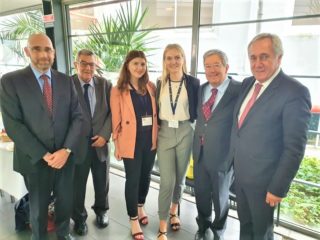
Conclusion:
In their working groups, the 21 participants have developed a very deep, holistic and interesting analysis about the structure and the current situation of the Eurozone, their members, neighbours and allies. How it works and where it works less well. Partially, Eurozone members are on the right track, but what is still missing are standardized eurozone fiscal rules and a Common Consolidated Corporate Tax Base. A lack of transparency of EU Commission’s work perceived by the population and a wide variety of interests, orientations and productivity levels of the Eurozone members which make it difficult to arrive at a real Eurozone integration and a EU common market.
Related texts:
“Europe and the road to the Eurobond” by Fernando Primo de Rivera
“How Portugal overcame the crisis” by Jorge Antos de Barras
Europe must discover new paths” by Jorge Antos de Barras
“Coming out of the Euro Crisis: A viewpoint from Spain” by Fernando Primo de Rivera
We thank the Universidade Lusíada de Lisboa for the support and the kind hospitality!



